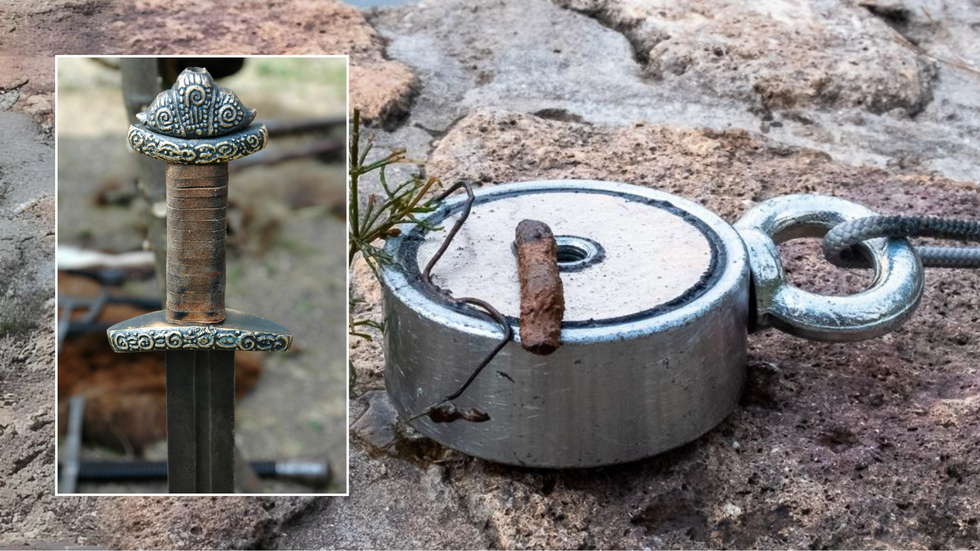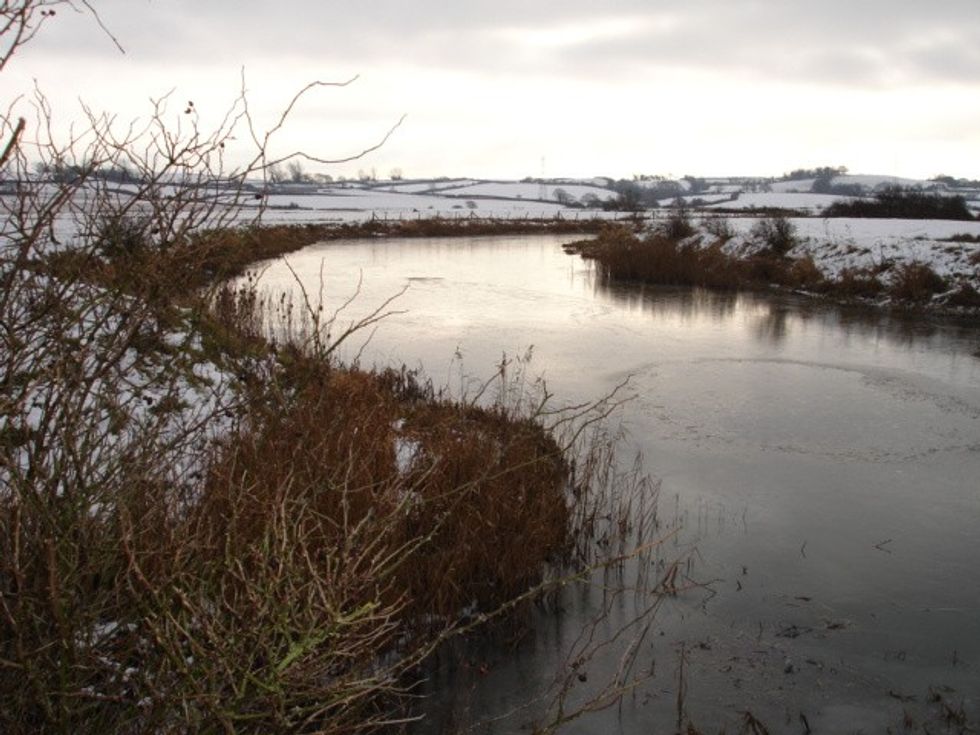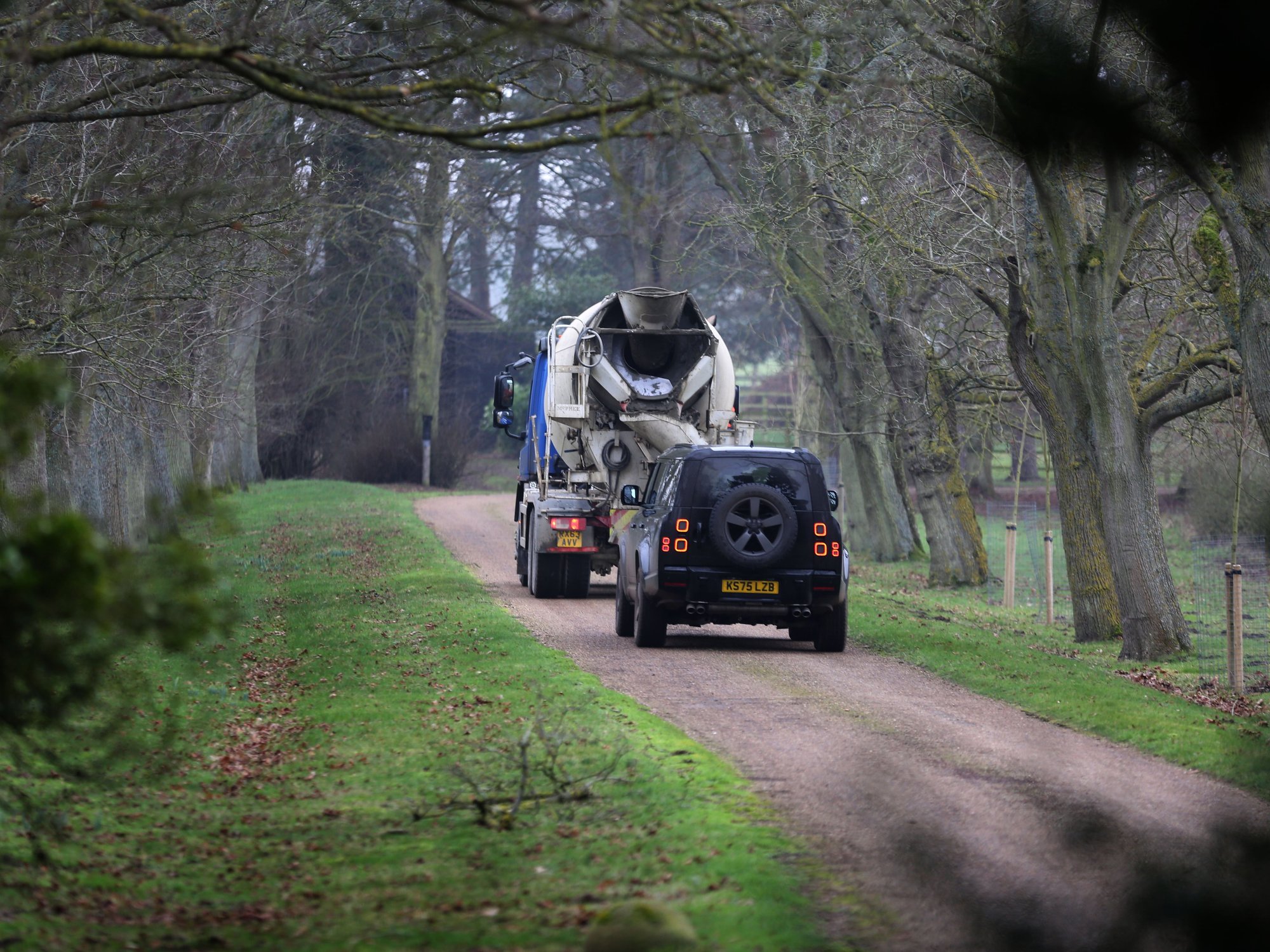British Museum urges detectorists not to go magnet fishing after breaking Viking sword while dredging

The priceless artefact’s hilt was lost when a ‘magnet fisher’ tried to salvage it from a river
Don't Miss
Most Read
Latest
Have-a-go detectorists using magnets to find underwater treasure have been scolded by the British Museum after a Viking sword was damaged while being ‘fished’ from a river.
The telling-off has come from the museum’s Portable Antiquities Scheme (PAS), which has reported record amounts of historical finds in the UK.
Growing numbers of those record hauls comprise treasures located with powerful magnets – a risky method that the PAS is keen to end.
The Scheme’s warning echoes those by French authorities after one man dredged a WW2 mortar bomb out of the River Erdre in Nantes with a large magnet last year.

The Viking sword would have been invaluable to its long-lost Norse owner
|Getty/Wikimedia Commons
The PAS was vindicated in their chiding when a Viking sword was destroyed by a ‘magnet fisher’ as it was pulled from the River Wallers Haven in Suffolk.
The sword, which would have been invaluable to its long-lost Norse owner, had its hilt fall off to be lost in the water after a would-be treasure-hunter attempted to pull it to the surface.
Experts from the PAS said: “‘Fishing for metal objects with powerful magnets in lakes and waterways has become increasingly popular.
“However, there are many risks involved, including finding unexploded ordnance and possibly drowning.
LATEST DEVELOPMENTS:

The River Wallers Haven in East Sussex, where the Viking sword was destroyed by a 'magnet fisher'
|Wikimedia Commons
“There is also the risk of damage to the object and its archaeological context, particularly at sites of ritual deposition.
“The PAS advises against this activity, which is banned by the Canal and River Trust on its waterways.”
‘Magnet fishing’ is banned in England and Wales and is punishable by a £25 fine – though the historical value destroyed by an errant magnet could be priceless.
The PAS’ warning about archaeological context is a grave one: if objects are recklessly pulled from their resting places, key clues about their use and origins could be lost forever.
Though the PAS has a lot to be thankful for when detectorists are involved – it has expressed gratitude in the past when one amateur archaeologist located a Tudor-period Catholic rosary bead on the banks of the Thames.
Mark Jones, interim director of the British Museum, said: “The information about finds is being recorded by the PAS to advance knowledge of past peoples, where and how they lived.
“As such, it reflects every part of human history, from the Palaeolithic to more modern times, across the whole of England and Wales.
“Most of the finds recorded have been found by members of the metal-detecting community and I wanted to especially thank them for recording these items with the PAS.”











